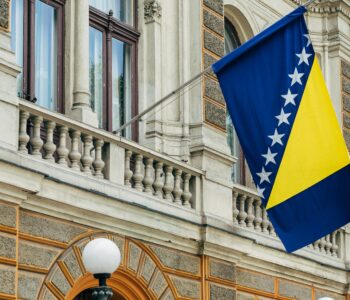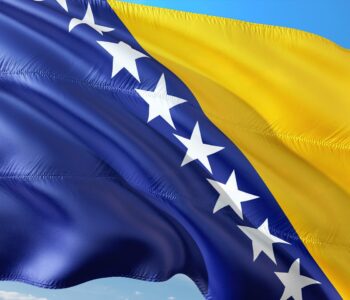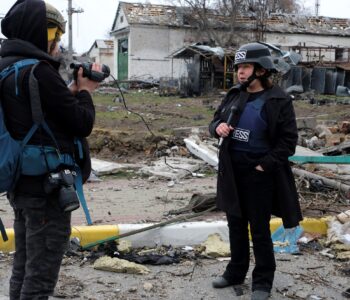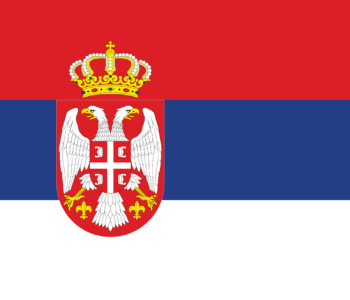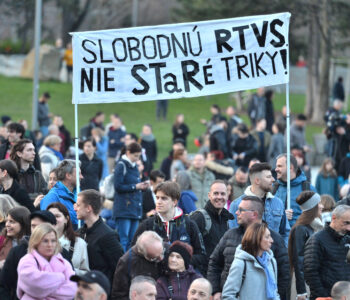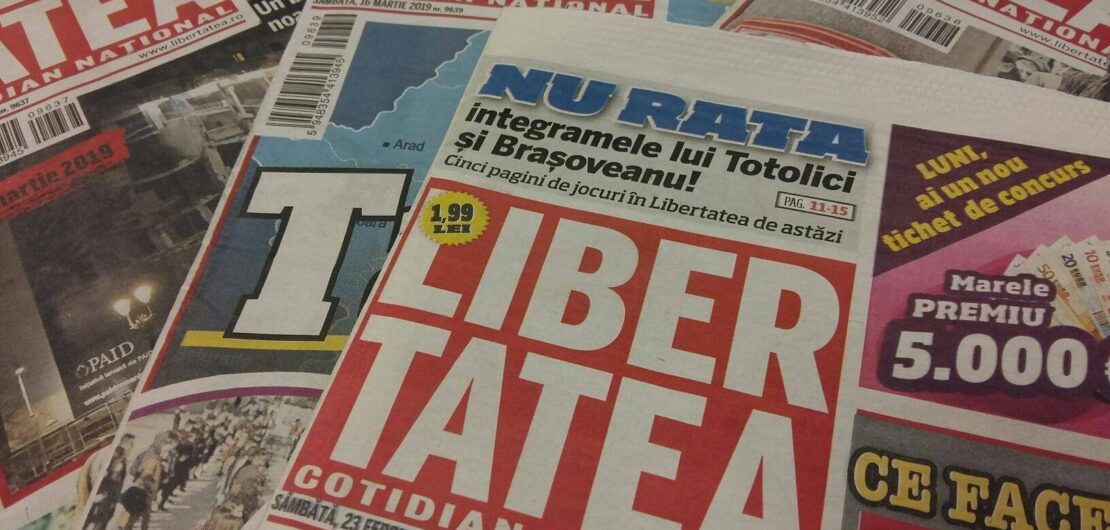 Library
Library
Romania: Super election year calls for press freedom assessment
Romania: Super election year calls for press freedom assessment
29 May 2024
A coalition of media freedom organisations will conduct a mission to Bucharest on 17-18 June 2024 to assess key challenges amid Romania’s super election year. The mission will address political influence on media, legal threats to journalists’ work and their safety, culminating in a conversation with the press.
Romanian translation here.
In Romania, European and local elections in early June will be followed by presidential and parliamentary elections in September and December respectively. In the midst of this super election year, the Media Freedom Rapid Response (MFRR) consortium will undertake a mission to Bucharest on 17-18 June 2024.
The mission will be jointly organised by the International Press Institute (IPI) and the Osservatorio Balcani Caucaso Transeuropa (OBCT), and will be joined by partners from the European Centre for Press and Media Freedom (ECPMF), the European Federation of Journalists (EFJ), and Free Press Unlimited (FPU).
Following its online fact-finding phase involving meetings with media and civil society stakeholders, during the upcoming in-person mission, the MFRR delegation aims to meet with state authorities. The group will discuss with institutional stakeholders developments regarding a set of critical issues, highlighted in the consortium’s recent report on Romania’s media landscape.
First findings: A politically influenced, unsafe media environment
The MFRR consortium has identified the following key issues to tackle:
- Media capture: The MFRR analysis identified severe political influence over Romanian media. Primarily, an opaque allocation of “media and propaganda” funds from state budgets to political parties foster a compliant and clientelist media environment. Additionally, the consortium noted with concern that the National Audiovisual Council, tasked with regulating media, is under-resourced and lacks political independence.
- Legal threats: Journalists in Romania face an increasing number of vexatious lawsuits (Strategic Lawsuits Against Public Participation, known as SLAPPs), designed to intimidate and silence voices of dissent. Aside from draining the media’s resources, the MFRR warns about their chilling effect on journalistic freedom.
- Safety concerns: The consortium has been monitoring a number of prominent cases of physical attacks, online harassment and smear campaigns targeting investigative journalists. Notable cases, such as that of investigative journalist Emilia Șercan, underscore the severity of these threats.
These topics are linked to key pieces of legislation that the European Union has recently adopted. The European Media Freedom Act aims to safeguard media independence and pluralism by tackling media capture, while the Anti-SLAPP Directive provides increased protections for journalists against vexatious lawsuits. Additionally, the European Commission adopted the Recommendation on the protection, safety and empowerment of journalists in September 2021. Two years later, the Council of Europe also launched the five-year Journalists Matter campaign, aiming to promote best practices among government and media stakeholders for improved journalist safety.
Our goals: Assess and address
Particularly during elections, journalists face intense political pressure and scrutiny for potential bias. Furthermore, an overall lack of public confidence is perhaps the biggest challenge Romanian media have to face. Yet, their role as public watchdogs is crucial for a fair electoral process. For this reason, the primary objectives of the upcoming MFRR mission are to:
- Evaluate the impact of political interference and media capture on journalistic independence, including an evaluation of the effectiveness and independence of media regulatory bodies.
- Investigate the prevalence and impact of SLAPPs and other forms of legal threats on Romanian journalists.
- Address the safety and protection concerns of journalists facing threats and harassment.
- Explore solutions, in dialogue and cooperation with relevant authorities, to support and sustain independent and local journalism in Romania.
Engagement and advocacy
The MFRR delegation will organise a conversation with the press on June 18, 2024, at 2PM in Bucharest, to present its initial observations and recommendations. An additional press release will be produced shortly after, in order to further detail the mission’s findings.
Press registration and contacts
Registration for the press event is open until June 17 at 12.00PM. To join the conversation, please fill out the registration form. To request a meeting with the delegation at a different time, and for more information about the mission, please contact us (stating your full name and media):
This mission is part of the Media Freedom Rapid Response (MFRR), a Europe-wide mechanism tracking, monitoring, and responding to violations of press and media freedom in EU Member States and candidate countries. The project is co-funded by the European Commission.
România: Anul super electoral impune o evaluare a libertății presei
Misiunea viitoare a consorțiului european pentru libertatea presei va evalua principalele provocări ale presei din România.
O coaliție de organizații pentru libertatea presei va efectua o misiune la București în perioada 17-18 iunie 2024 pentru a evalua principalele provocări în contextul anului super electoral din România. Misiunea va aborda influența politică asupra mass-mediei, amenințările legale la adresa activității jurnaliștilor și a siguranței acestora. O conversație cu presa va încheia activitățile coaliției.
În România, alegerile europene și locale de la începutul lunii iunie vor fi urmate de alegeri prezidențiale și parlamentare în septembrie și, respectiv, decembrie. În mijlocul acestui an super electoral, consorțiul Media Freedom Rapid Response (MFRR) va întreprinde o misiune la București în perioada 17-18 iunie 2024.
Misiunea va fi organizată în comun de către International Press Institute (IPI) și Osservatorio Balcani Caucaso Transeuropa (OBCT), și va fi însoțită de parteneri de la European Centre for Press and Media Freedom (ECPMF), European Federation of Journalists (EFJ) și Free Press Unlimited (FPU).
Misiunea delegației MFRR – precedată de o documentare online, care a inclus întâlniri cu mass-media și cu parteneri din societatea civilă – urmărește acum să se întâlnească cu autoritățile statului.. Grupul va discuta cu părțile interesate un set de aspecte critice, evidențiate în raportul recent al consorțiului privind peisajul mediatic din România.
Primele constatări: Un mediu mediatic incert și influențat politic
Consorțiul MFRR a identificat următoarele aspecte cheie care vor fi abordate pe parcursul misiunii :
- Mass-media capturată politic: Analiza MFRR a identificat o influență politică severă asupra mass-mediei românești. În primul rând, o alocare opacă a fondurilor pentru „presă și propagandă” de la bugetul de stat către partidele politice favorizează un mediu jurnalistic conformist și clientelar. Mai mult, consorțiul a observat cu îngrijorare că Consiliul Național al Audiovizualului, care are sarcina de a reglementa mass-media, este lipsit de resurse și de independență politică.
- Amenințări juridice: Jurnaliștii din România se confruntă cu un număr din ce în ce mai mare de procese vexatorii (procese strategice împotriva participării publice, cunoscute sub numele de SLAPP), menite să intimideze și să reducă la tăcere vocile disidente. Pe lângă faptul că astfel de procese epuizează resursele organizațiilor de presă, MFRR avertizează asupra efectului lor descurajator asupra libertății jurnalistice.
- Preocupări legate de siguranță: Consorțiul a monitorizat o serie de cazuri proeminente de atacuri fizice, hărțuire online și campanii de defăimare care au vizat jurnaliștii de investigație. Cazuri notabile, precum cel al jurnalistei de investigație Emilia Șercan, subliniază gravitatea acestor amenințări.
Aceste subiecte sunt legate de acte legislative cheie pe care Uniunea Europeană le-a adoptat recent. Legea europeană privind libertatea mass-mediei are ca scop protejarea independenței și pluralismului presei prin abordarea capturării mass-media, în timp ce Directiva anti SLAPP oferă o protecție sporită pentru jurnaliști împotriva proceselor vexatorii.
În septembrie 2021, Comisia Europeană a adoptat o Recomandare privind protecția, siguranța și capacitarea jurnaliștilor. Doi ani mai târziu, Consiliul Europei a lansat, de asemenea, campania de cinci ani Journalists Matter, care vizează promovarea celor mai bune practici în rândul guvernelor și al părților interesate din domeniul mass-media pentru îmbunătățirea siguranței jurnaliștilor.
Obiectivele noastre: Să evaluăm și să răspundem la probleme
În special în timpul alegerilor, jurnaliștii se confruntă cu o presiune politică intensă și cu o examinare amănunțită a imparțialității presei. Mai mult, lipsa generală de încredere a publicului este poate cea mai mare provocare cu care se confruntă mass-media din România. Cu toate acestea, rolul lor de avertizori publici este esențial pentru un proces electoral corect. Din acest motiv, obiectivele principale ale viitoarei misiuni MFRR sunt următoarele:
- Să evalueze impactul interferențelor politice și al capturii mediatice asupra independenței jurnalistice, inclusiv să evalueze eficiența și independența organismelor de reglementare a mass-media.
- Să investigheze prevalența și impactul SLAPPs și a altor forme de amenințări legale asupra jurnaliștilor români.
- Să abordeze preocupările legate de siguranța și protecția jurnaliștilor, care se confruntă cu amenințări și hărțuiri.
- Să exploreze soluții, în dialog și cooperare cu autoritățile relevante, pentru a sprijini și susține jurnalismul independent din România.
Implicare și advocacy
Delegația MFRR va organiza o dezbatere cu presa pe 18 iunie 2024, la ora 14:00, la București, pentru a prezenta observațiile și recomandările sale inițiale. Un comunicat de presă va fi publicat la scurt timp după aceea, pentru a detalia în continuare concluziile misiunii.
Informații pentru presă
Înregistrarea la evenimentul de presă este deschisă până la 17 iunie, ora 24.00. Pentru a participa la dezbatere, vă rugăm să completați formularul de înregistrare.
Pentru a solicita o întâlnire cu delegația la o altă oră și pentru mai multe informații despre misiune, vă rugăm să ne contactați (menționând numele și prenumele dvs. și numele instituției mass-media pe care o reprezentați):
Beatrice Chioccioli
Ofițer de advocacy pentru Europa
International Press Institute (IPI)
+43 681 103 433 67
Sielke Beata Kelner, PhD
Cercetător și ofițer de advocacy
OBC Transeuropa (OBCT)
Această misiune este parte a MFRR (Media Freedom Rapid Response), un mecanism la nivel european de urmărire, monitorizare și răspuns la încălcările libertății presei și a mass-media în statele membre ale UE și în țările candidate. Proiectul este cofinanțat de Comisia Europeană.

